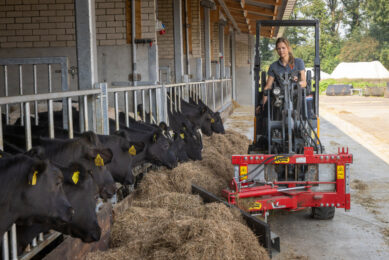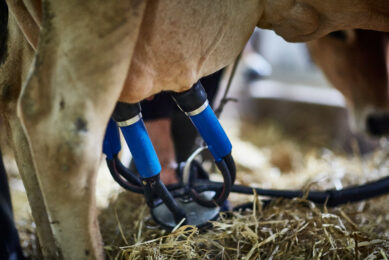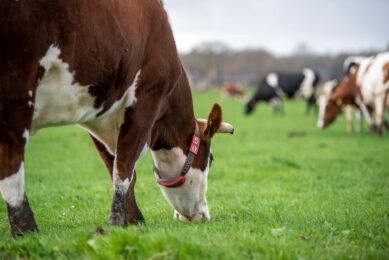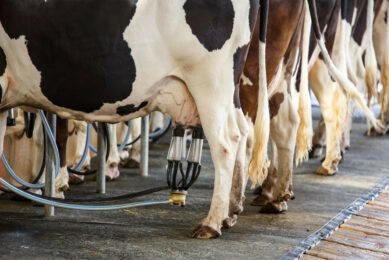Data and drivers for antibiotic use on UK dairy farms
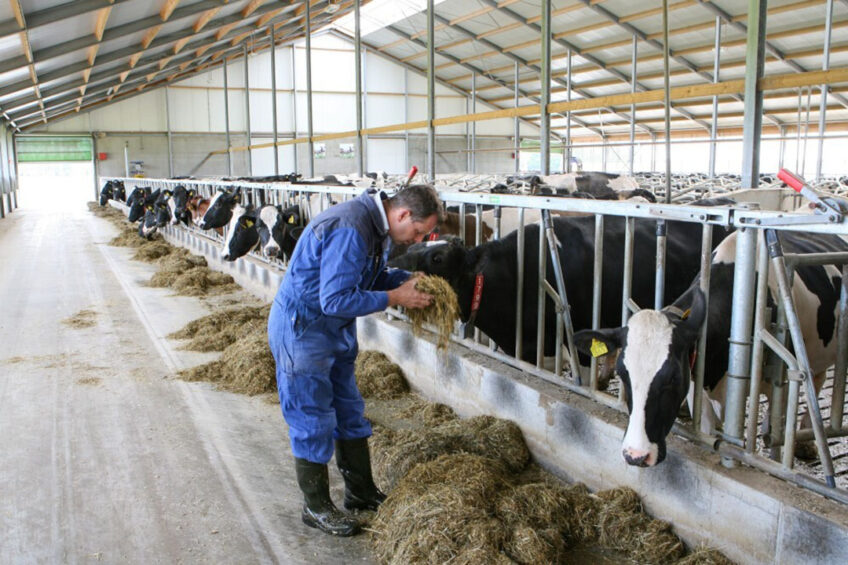
Research studies into improving data capture for antibiotic use on UK dairy farms has revealed the need for producers to use digital software in a more sophisticated manner to record information.
With antibiotic usage recognised globally as the main driver for the increase of antibiotic resistance within the livestock and human sectors, the study wanted to look at the development of accurate, centralised species-specific farm level data capture systems.
At present, there is limited data on how dairy farmers currently record antibiotic use, so the study looked at the accuracy of the records and how producers came to decisions on capturing antibiotic usage (ABU).
The objectives of the study, led by the Royal Veterinary College, was:
- To survey the diversity of antibiotic recording systems used across the GB dairy industry and assess the accuracy of antibiotic data captured on farm, developing a scoring system.
- To identify risk factors associated with poor recording accuracy of ABU on GB dairy farms.
- To provide further knowledge and understanding of dairy farmers’ perceptions and attitudes towards data sharing through a centralised system.
- To explain dairy farmers’ motivations for and barriers to the recording of antibiotic usage and to understand the knowledge of both ABU and antibiotic resistance (ABR).
- To design the cost of data collection recording of ABU by GB dairy farmers and explain whether costs have an impact on the accuracy of farm records.
Complete and correct data
The studies included farmer participation in South West England and Wales, who were required to complete a questionnaire and provide retrospective copies of on-farm medicine records.
One of the pieces of work examined the completions and correctness of data entries for each legally required variable and the overall accuracy of record identified 3 key findings:
- Farmers’ perceptions on recording accuracy does not match reality.
- Software has a greater accuracy in capturing ABU data compared to paper systems.
- Certain areas were unique to software derived from the interaction of farmers with their platform.
“…there should be a continued focus on the roll-out of super-fast broadband in rural areas to facilitate the use of software.”
The results found that dairy farmers should be more aware of where errors are occurring and encouraged to use software to record ABU. In addition, software functionality needs improving to optimise ABU accuracy. Restrictions or no internet access impeded some farmers with recording accuracy, whereas the use of Infectious Bovine Rhinotracheitis (IBR) vaccination was associated with improved accuracy.
The study argued there should be a continued focus on the roll-out of super-fast broadband in rural areas to facilitate the use of software.
Reinforce antibiotic stewardship
It also found that dairy farmers felt they had nothing to hide from sharing ABU data within a centralised system – they saw the potential financial and welfare benefits around identification of herd health issues. But the report raised concerns about their lack of capacity and ability to carry out such data entries and the extent of the need for third party access, calling for more support from the dairy industry.
Producers also said they recognised the global issue around ABR but didn’t feel it was an issue for them on their own units, suggesting, according to the report, of the need for greater active ABR on-farm surveillance to reinforce antibiotic stewardship.
The research was funded by an internal PhD studentship award from the Royal Veterinary College, University of London. Additional funding to conduct farm visits and farmer interviews was awarded by Antibiotic Research UK.
Details of the surveys can be found here.
Join 13,000+ subscribers
Subscribe to our newsletter to stay updated about all the need-to-know content in the dairy sector, two times a week.



